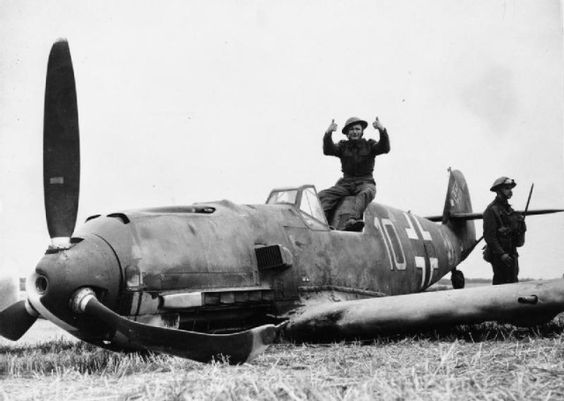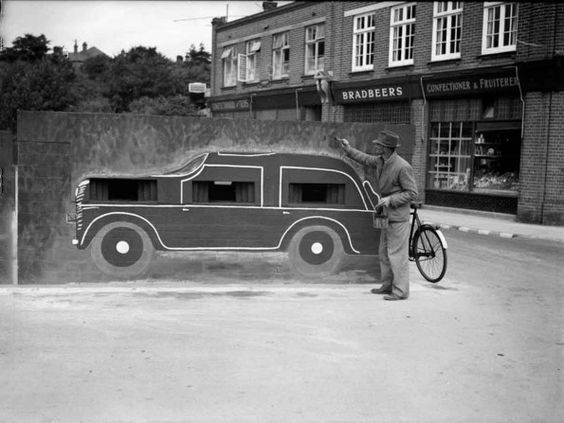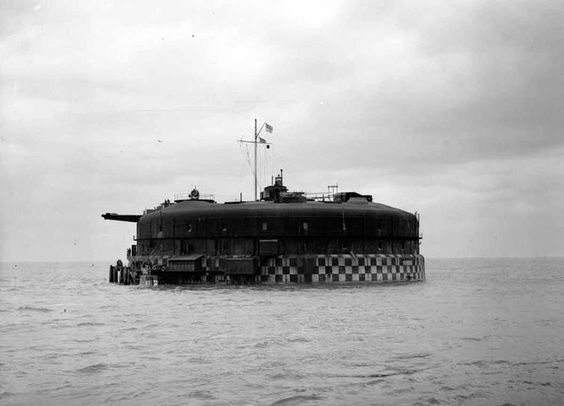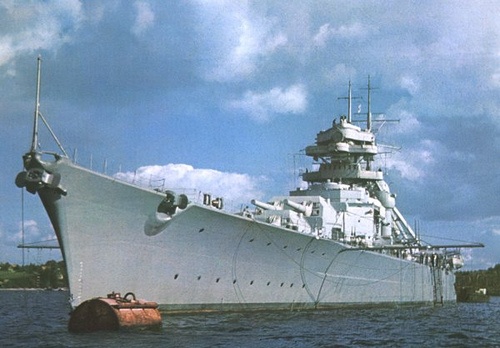Wednesday 12 February 1941
 |
| General Erwin Rommel meets Italian commander General Garibaldi in Tripoli. |
As has been the case for several days, however, the real action is taking place in capitals across Europe and North Africa. In a note to British Middle East Commander General Archibald Wavell, British Prime Minister Winston Churchill sets forth current priorities:
[Y]our major effort must now be to aid Greece and/or Turkey. This rules out any serious effort against Tripoli, although minor demonstrations thitherwards would be a useful feint.... concentrate all available forces in the Delta in preparation for movement to Europe.This change in priorities from North Africa to Greece is, as Churchill knows, opposed not only by Wavell but by his closest military advisers in London. However, Churchill is acting on his own initiative. He concludes his instructions to Wavell with alternative moves in case the Greeks prove uncooperative regarding British troop inflows (as they have in the past):
[T]hen we must try to save as much from the wreck as possible. We must, at all costs, keep Crete and take any Greek islands which are of use as air bases. We could also reconsider the advance on Tripoli. But these will only be consolation prizes after the classic race has been lost.Thus, Churchill makes clear that Greece itself is only a pawn in the struggle against Hitler, and only useful in that regard. In essence, he proposes making war on Greece itself if it stands in the way of fighting Hitler on Greek soil.
 |
| General Rommel around the time of his arrival in Libya, 12 February 1941. |
It doesn't go quite like that. At 05:30, the British artillery roars and the 4/6th Rajputana Rifles advance toward the west side of the Dongolaas Gorge. The objective is the Acqua Col, a spot that connects Italian strong-points on either side. Things go wrong right from the start, though: the initial surge carries to the crest of the feature, but there the troops are subjected to murderous crossfire. The battalion leader, Captain Subadar Richpal Ram, is at the forefront, and he has his foot blown off and is shot dead shortly thereafter (Posthumous VC). The 4/11th Sikh Regiment comes at the Col from the side but is stopped cold. The Indian troops are forced to retreat again, leaving them with nothing to show for heavy casualties incurred in several days of desperate fighting.
Lieutenant-General William Platt now has tried to force both sides of the gorge twice, with no success. He decides to build up his supplies and troops and try a set-piece battle at a later date. Platt sends the 29th Infantry Brigade back to Barentu, which is served by a railway line and can be more easily supplied. The British sit down to devise a new strategy.
RAF planes bomb and sink the 590-ton German cargo ship Askari at Kismayo, Somalia, while on a voyage to Mogadishu. The crew of Askari manages to beach it on the 13th, but it is a total loss.
Elsewhere in Eritrea, British forces take Elghena south of Port Sudan.
At Kismayo, Somalia, the Italians scuttle freighters Integritas (5952 tons), Marghera (4531 tons), and Carso (6275 tons). The Carso is later salvaged and renamed Empire Tana.
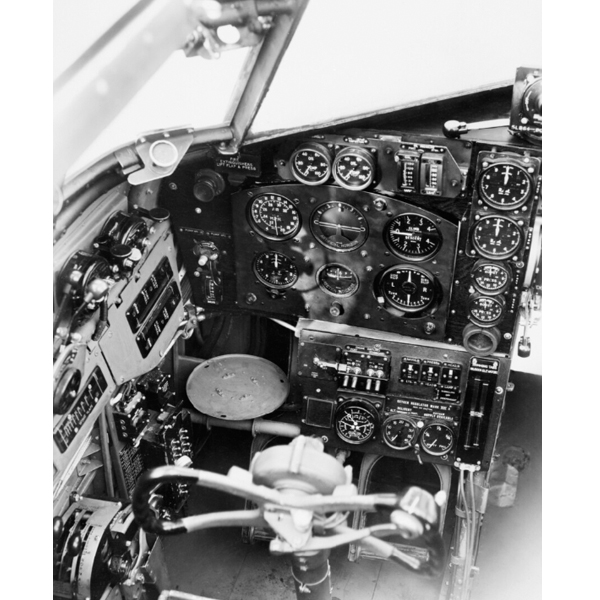 |
| Bristol Blenheim Mark V: pilot's controls and instrument panel on the port side of the cockpit. (IWM, February 1941). |
Battle of the Atlantic: With four German heavy cruisers (Admiral Scheer, Admiral Hipper, Gneisenau and Scharnhorst) on the loose in the Atlantic, the Royal Navy is as stretched as at any point of the war. Force H from Gibraltar departs into the Atlantic to cover Convoy HG 53, which has been under incessant attack by the Luftwaffe and U-boats. Late in the day, it is redirected to cover Convoy WS 6, a troop convoy bound for the Middle East - the other convoy would have to be left to its own devices.
One of those German cruisers, Admiral Hipper, illustrates today why the Royal Navy is worried. After stalking Convoy SLS 64 through the night just east of the Azores, it attacks at dawn. It is a reprise of its Christmas Day attack on another convoy in the same general area, but this time there are no escorts to send it fleeing for the port. In short order, Hipper sinks:
- British 4876-ton freighter Warlaby (three survivors)
- British 4712-ton freighter Westbury (five deaths)
- British 4684-ton freighter Oswestry Grange (five deaths)
- British 4542-ton freighter Shrewsbury (20 deaths)
- British 4896-ton freighter Derrynane (all lost)
- Norwegian 3924-ton freighter Borgestad (all lost)
- Greek 5172-ton freighter Perseus (14 deaths)
Much confusion develops about this encounter which is not resolved until much later. The British, in possession of the convoy manifest, correctly report 7 ships lost. However, the Germans claim 13 ship victims, and some survivors of the convoy (experienced sea crews) believe that 14 ships were sunk. This is a classic example of how eyewitnesses can perceive vastly different outcomes without any deliberate attempt to inflate the figures - though the Germans are not averse to inflating enemy loss figures.
After this attack, Admiral Hipper heads for Brest. Due to a chain of related reasons, this will be Hipper's last operation for a full year.
Royal Navy submarine HMS Tigris sinks 243-ton French fishing trawler René Camaleyre in the Bay of Biscay.
Swedish 2139 ton four-masted hulked bark Gullmarn, built 1887, drifts ashore at Madeira and is wrecked.
British 8 ton fishing vessel Caledonian hits a mine and blows up.
Royal Navy corvette HMS Amaranthus (Lt. Nicholas B. J. Stapleton, K 17) and destroyer HMAS Nestor (Commander George S. Stewart) are both commissioned.
U-651 (Kapitänleutnant Peter Lohmeyer) is commissioned, U-301 and U-659 are laid down. U-651 develops a reputation for being crewed by particularly fanatical Germans, a spirit apparently imbued by Lohmeyer.
Soviet submarine M-122 is launched.
 |
| General Rommel takes command in Tripoli, on or about 12 February 1941 (Sturm, Federal Archives). |
In fact, today does mark a definitive end to Operation Compass. Some Italian troops have been holding out at Beda Fomm despite their hopeless position. Today, the last of them surrender. Throughout the campaign, including the very end today, the Italians have outnumbered the British by roughly 20,000-3000.
General Erwin Rommel flies on a Junkers Ju 52 from Rome to Tripoli to command the new Afrika Korps troops carried in three German transport ships that made port on the 11th. These transports carried elements of the 5th Light Division. The plan is for the Korps to include the light (motorized) division, a panzer division, and Italian infantry (the Ariete and Trento divisions). Rommel meets new Italian Libyan Commander General Italo Gariboldi, who replaced Marshal Rodolfo Graziani.
Rommel has his men march around the town square repeatedly to make it appear that he has more men than he actually does. He also has them drive real and fake German tanks. This is an old German trick, first practiced in the Rhineland in the 1930s when the Luftwaffe would fly the same few planes overhead to make it appear as if it had more forces than it actually did. Naturally, the Germans can assume that there are many British sympathizers among the local populace, word will get out, and appearances are important. The British are 400 miles from Tripoli, but there is virtually nothing standing between them and the few Germans in North Africa aside from Italian troops who have proven themselves completely ineffective.
The second convoy of ships carrying the Afrika Korps departs from Naples. There are four transport ships (Adana, Aegina, Kybfels, and Ruhr) escorted by Italian destroyer Camicia Nera and torpedo boat Procione. The convoy will follow the usual pattern of spending a day in Palermo before proceeding on to Tripoli.
British Foreign Secretary Anthony Eden and Chief of the Imperial General Staff General Sir Anthony Dill depart London bound for Cairo. Their mission (according to Churchill's written instructions) is to expedite "speedy succor to Greece" and for CIGS Dill to "advise on the military aspect." He provides a list of 15 points that "require particular attention," the most interesting (in light of later events) of which is "What is the minimum garrison that can hold the western frontier of Libya, and Benghazi."
Churchill's letter of introduction for Middle East commander General Wavell is illuminating as to colloquialisms in use at the time. He writes:
Request you will take all possible precautions for safety of our two Envoys having regard to nasty habits of Wops and Huns.In another note to Wavell, Churchill offers his "heartfelt congratulations" on taking Benghazi, but forbids any further advances beyond "demonstration attacks." General Rommel later writes:
If Wavell had now continued his advance into Tripolitania, no resistance worthy of the name could have been mounted against him - so well had his superbly planned offensive succeeded.Of course, the Germans could not know that Wavell was gung-ho for taking Tripolitania, but it was solely the decision of Churchill to stand pat and divert units elsewhere. Some consider this 12 February 1941 order to stop at Benghazi to be one of the greatest British military blunders of the war.
Australian Prime Minister Robert Menzies, on his extended journey from Melbourne to London, returns from Benghazi to Cairo. He experiences "My first Air Raid" before leaving the former, a visit at dawn by some minelaying bombers. The Royal Navy at this time is sending ships from Alexandria and Suda Bay in Operation Shelford to sweep Benghazi Harbor.
At Malta, the increased German presence in the Mediterranean is made plain by the first appearance of Bf 109 fighters over the island. A dozen 7,/JG 26 fighters escort a Fliegerkorps X bombing raid during the afternoon and shoot down three Hurricanes - the worst losses suffered by the RAF on the island to date. The Bf 109 pilots are veterans of the Channel Front and among the best fighter pilots of the time. They are led by ace Oblt. Müncheberg, who gets one of the victories.
Royal Navy submarine HMS Utmost damages 5463-ton Italian freighter Manfredo Campiero off Tripoli.
 |
| Rommel reviewing troops in Tripoli, on or about 12 February 1941. |
Applied Science: Howard Florey's team administers penicillin for the first time to a patient (43-year-old Reserve Constable Albert Alexander) at the Radcliffe Infirmary in Oxford. While a policeman, Alexander incurred his infection to the face while pruning roses in his garden. The experiment is a success, but the patient dies (not enough penicillin available).
Work will proceed on this promising drug for infections. Penicillin, the first true antibiotic, was discovered by Alexander Fleming in 1928 and developed at Oxford by Florey, Ernest Chain, and others. Florey will travel to the United States during the summer to interest the Americans in developing the antibiotic further.
Italian/Spanish Relations: Mimicking the October 1940 meeting at Hendaye between Adolf Hitler and Spanish Generalissimo Francisco Franco, Mussolini meets with Franco at Bordighera on the Italian Riviera to chat "on all problems interesting the two governments at the present historic moment." The meeting is scheduled to take two days. Hitler has high hopes that Mussolini can convince Franco to join the Axis.
Italian/US Relations: Italy requests that the United States close its consulates in Palermo and Naples and consolidate operations in Rome. This purportedly is due to the recent Royal Navy raid on Genoa, which makes the entire Italian seacoast insecure.
British Government: Prime Minister Winston Churchill takes questions in the House of Commons. He states that
I can recall no occasion when the question of peace aims or reconstruction has been mentioned by any of the representatives of the American Government.Churchill also memos the Foreign Office conceding that he has received "no reply" to offers made to Vichy French General Weygand. On another topic, he urges the foreign office to be prepared to supply food to Spain in order to induce them to support the Allied cause.
Churchill's Assistant Private Secretary, Jock Colville, notes in his diary today that there was "great opposition" to Churchill's veto of any attempt by XIII Corps to complete the conquest of Libya. He mentions that CIGS Sir John Dill "felt so strongly about it that he was almost thinking of resigning." Colville notes that sending insufficient forces to Greece runs "the risk of another Dunkirk."
Spanish Government: Alfonso XIII, the former king now living in Rome, renounces the throne in favor of his son Juan, who is the third surviving son of the king. Alfonso was deposed by the Second Spanish Republic. Juan, known to history as Infante Juan, Count of Barcelona. Juan is the father of Juan Carlos I, the future king of Spain rather than Juan due to the post-war intervention of Franco.
Chile: The country is 400 years old today, and holds celebrations.
Dutch Homefront: The street battles in Amsterdam continue. The Wehrmacht works with local Dutch police to quarantine the Jewish quarter of the city with barbed Wire. Police checkpoints are set up, and nobody goes in (unless they are Jewish) or out. The occupation authorities meet with Jewish leaders and appoint them as members of the Joodsche Raad (Jewish Council). The Joodsche Raad is a very controversial organization that remains in existence throughout the occupation. Some accuse it of effective collaboration.
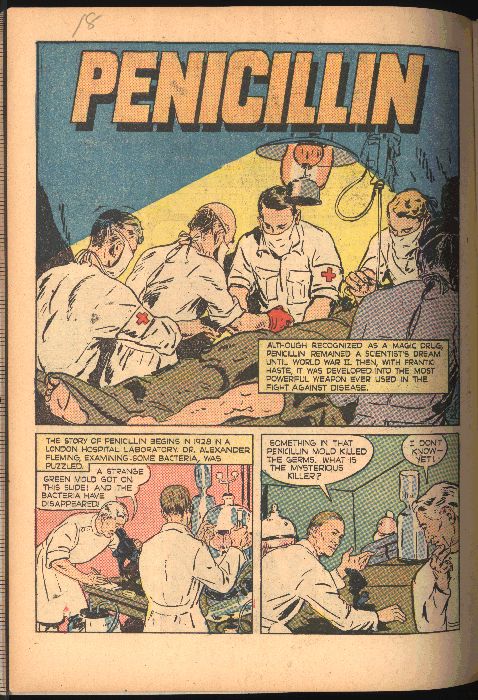 |
| A comic book showing the first administration of penicillin to treat an infection. |
February 1941
February 1, 1941: US Military Reorganization
February 2, 1941: Wehrmacht Supermen
February 3, 1941: World Will Hold Its Breath
February 4, 1941: USO Forms
February 5, 1941: Hitler Thanks Irish Woman
February 6, 1941: Operation Sunflower
February 7, 1941: Fox Killed in the Open
February 8, 1941: Lend Lease Passes House
February 9, 1941: Give Us The Tools
February 10, 1941: Operation Colossus
February 11, 1941: Afrika Korps
February 12, 1941: Rommel in Africa
February 13, 1941: Operation Composition
February 14, 1941: Nomura in Washington
February 15, 1941: Churchill's Warning
February 16, 1941: Operation Adolphus
February 17, 1941: Invade Ireland?
February 18, 1941: Panzerwaffe Upgrade
February 19, 1941: Three Nights Blitz
February 20, 1941: Prien's Farewell
February 21, 1941: Swansea Blitz Ends
February 22, 1941: Amsterdam Pogrom
February 23, 1941: OB-288 Convoy Destruction
February 24, 1941: Okuda Spies
February 25, 1941: Mogadishu Taken
February 26, 1941: OB-290 Convoy Destruction
February 27, 1941: Operation Abstention
February 28, 1941: Ariets Warns Stalin
2020

